Does Shampooing Daily Damage Hair? | Hair Care Guide
Did you know that most people only wash their hair every three to four days? This surprising statistic challenges the common assumption that daily shampooing is necessary for healthy hair. In reality, experts suggest that only a small group, such as individuals with very fine hair or those who exercise frequently, may truly require daily hair washing.
The American Academy of Dermatology recommends washing Black hair once a week or every other week to maintain its Health. Furthermore, a trend has emerged where more people are going a week or more between hair washes, with one individual, Caroline Lynch, reporting shampooing about once a week and seeing improvements in her hair quality and budget.
This hair care Guide will explore the role of shampoo in maintaining healthy hair, the potential drawbacks of daily shampooing, and how to find the right balance for your unique hair type and needs. By understanding the science behind hair structure and growth, you can make informed decisions about your hair care routine and achieve your desired results.
Key Takeaways
- Most people only need to wash their hair every 3-4 days, not daily.
- Experts recommend washing Black hair once a week or every other week to maintain its Health.
- A small group, such as those with very fine hair or who exercise frequently, may require daily shampooing.
- Frequent shampooing can strip the hair of its natural oils, leading to dryness and damage.
- Finding the right balance for your hair type is key to achieving healthy, vibrant hair.
Understanding Hair Structure and Growth
To properly care for your hair, it’s essential to understand its intricate structure and growth patterns. Hair is composed of three main parts: the shaft, root, and follicle. The shaft is the visible portion of the hair, while the root anchors the hair deep within the scalp. The follicle is the tube-like structure that houses the root and facilitates hair growth.
The Anatomy of Hair
Hair is primarily made up of a protein called keratin, which gives it strength and structure. The hair shaft is further divided into three layers: the cuticle, cortex, and medulla. The cuticle is the outermost layer, protecting the inner layers from damage. The cortex is the thickest layer, responsible for Hair color and texture. The medulla, found in thicker hair types, is the innermost layer consisting of transparent cells and air spaces.
How Hair Grows
Hair growth occurs in a cyclical pattern, consisting of three phases: anagen (growth), catagen (transition), and telogen (resting). During the anagen phase, which can last several years, the hair actively grows. The catagen phase is a transitional period, and the telogen phase is when the hair rests before eventually shedding and being replaced by a new hair.
Factors Influencing Hair Health
- Genetics: Your genetic makeup plays a significant role in determining your hair structure, growth patterns, and overall health.
- Age: As we grow older, hair growth slows, and the hair may become thinner and more fragile.
- Hormones: Hormonal changes, such as those experienced during pregnancy or menopause, can affect hair growth and texture.
- Nutrition: A balanced diet rich in vitamins, minerals, and proteins is essential for maintaining healthy hair.
- Environmental factors: Exposure to UV radiation, pollution, and harsh chemicals can all contribute to hair damage and deterioration.
Understanding the structure, growth patterns, and health factors of hair is crucial for developing an effective hair care routine that meets your individual needs. By addressing these key aspects, you can keep your hair looking and feeling its best.
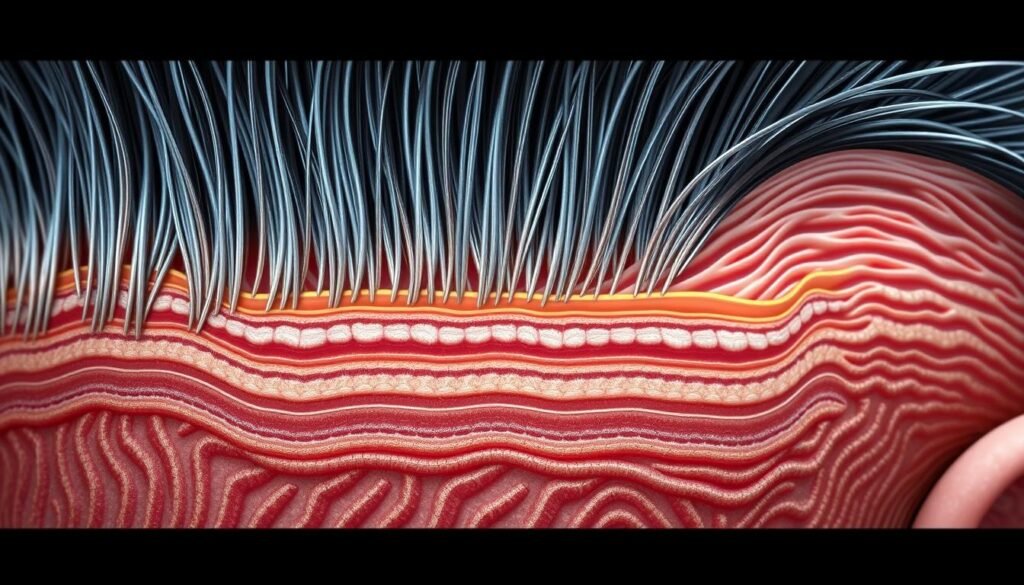
The Role of Shampoo in Hair Care
Shampoo is a crucial component of any hair care routine, serving as an emulsifier that captures excess oil, dirt, and product residue. Knowing the right shampoo ingredients to look for and understanding the effects of common shampoo additives can help you make informed decisions when it comes to selecting the best hair care products for your individual needs.
Ingredients to Look For
The primary function of shampoo is to cleanse the hair and scalp. Key ingredients to look for include:
- Cleansing agents, such as sulfates or sulfate-free alternatives, which effectively remove dirt, oil, and product buildup.
- Conditioning agents, which help to smooth and nourish the hair cuticle.
- Preservatives, which ensure the shampoo’s stability and longevity.
Common Additives and Their Effects
In addition to the core cleansing and conditioning components, many shampoo additives are commonly found in hair care products:
- Fragrances – Can provide a pleasant scent, but may cause irritation for those with sensitive skin or allergies.
- Coloring agents – Used to tint the shampoo, but may contribute to dryness or discoloration of color-treated hair.
- Specialized ingredients – Such as proteins, vitamins, or botanicals, designed to address specific hair care concerns.
It’s important to note that certain shampoo additives, particularly sulfates, can be drying or irritating if used too frequently. For color-treated or keratin-treated hair, sulfate-free shampoos are often recommended to prevent further damage.
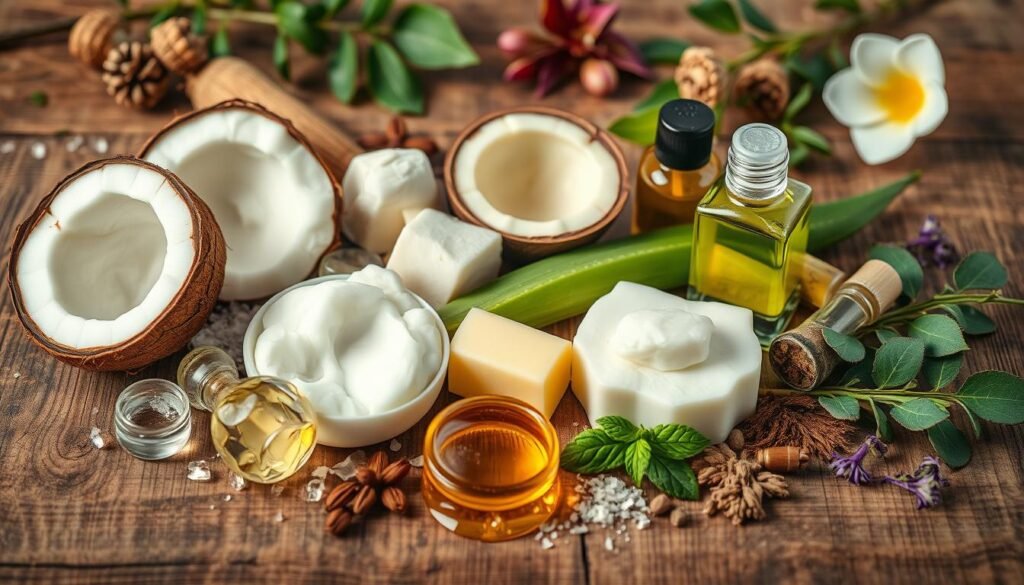
“Shampoo is an essential part of any hair care routine, but it’s important to choose the right formulation for your individual hair type and needs.”
Daily Shampooing: Pros and Cons
When it comes to hair care, the debate around daily shampooing has been a long-standing one. While some swear by the benefits of a daily cleansing routine, others caution against the potential drawbacks. To help you make an informed decision, let’s explore the pros and cons of daily hair washing.
Benefits of Daily Shampooing
Regular hair washing, done correctly, can offer several advantages. Daily shampooing helps remove excess oil, sweat, and dirt from the scalp, promoting a clean and healthy environment for your hair to thrive. This can be particularly beneficial for those with oily hair or an active lifestyle, as it can help prevent the buildup of sebum and other impurities that can lead to issues like dandruff. Additionally, a daily cleansing routine can help maintain a fresh, well-groomed appearance, which can boost confidence and self-esteem.
Potential Drawbacks
While daily shampooing has its merits, it’s not without its drawbacks. Frequent washing can strip the hair of its natural oils, leading to dryness, brittleness, and even damage over time. This can result in dull, lifeless locks, as well as an increased risk of split ends and breakage. Moreover, excessive shampooing can disrupt the scalp’s natural pH balance, potentially contributing to irritation, flakiness, and even the development of dandruff.
For most individuals, shampooing every 2-3 days is generally sufficient to maintain healthy hair and a clean scalp. However, those with oily hair or an active lifestyle may benefit from more frequent washing, while those with dry or coarse hair may fare better with less frequent shampooing.
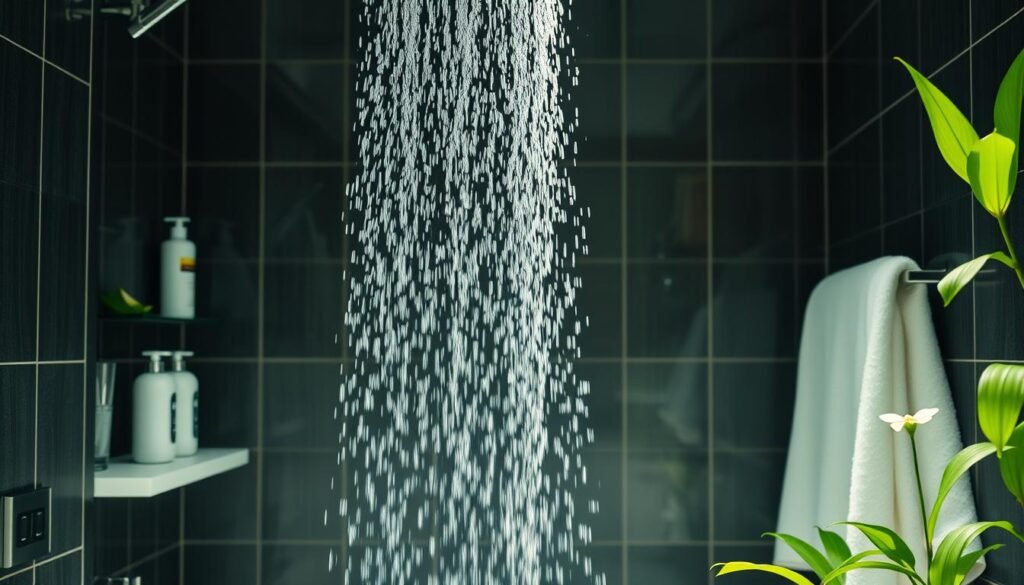
Ultimately, the optimal shampooing frequency will depend on your individual hair type, texture, and lifestyle. Consulting with a professional hair stylist or dermatologist can help you determine the right hair care routine for your unique needs, ensuring that your daily hair washing habits don’t compromise the long-term health and vitality of your shampoo frequency.
Hair Types and Shampooing Frequency
The frequency with which you should shampoo your hair can vary greatly based on your hair type. Understanding the unique needs of different hair types is crucial in determining the optimal shampoo frequency for healthy, vibrant locks.
Oily vs. Dry Hair
Individuals with oily hair may need to shampoo more often, perhaps every other day or even daily, to help control excess sebum production and maintain a clean, fresh scalp. On the other hand, those with dry hair can often go longer between washes, perhaps just once or twice a week, to prevent stripping the natural oils that keep their hair hydrated and healthy.
Curly and Coarse Hair Characteristics
People with curly and coarse hair tend to have drier hair textures, which may only require washing once a week or every other week. This helps maintain the hair’s natural oils and prevent excessive dryness and breakage. In contrast, those with straight, thin hair may need to shampoo more frequently as oil can be more noticeable on their strands.
| Hair Type | Recommended Shampoo Frequency |
|---|---|
| Oily Hair | Every other day or daily |
| Dry Hair | 1-2 times per week |
| Curly and Coarse Hair | 1 time per week or every other week |
| Straight, Thin Hair | 2-3 times per week |
The American Academy of Dermatology recommends that individuals with Black hair wash their hair once a week or every other week to maintain its health and prevent excessive dryness.
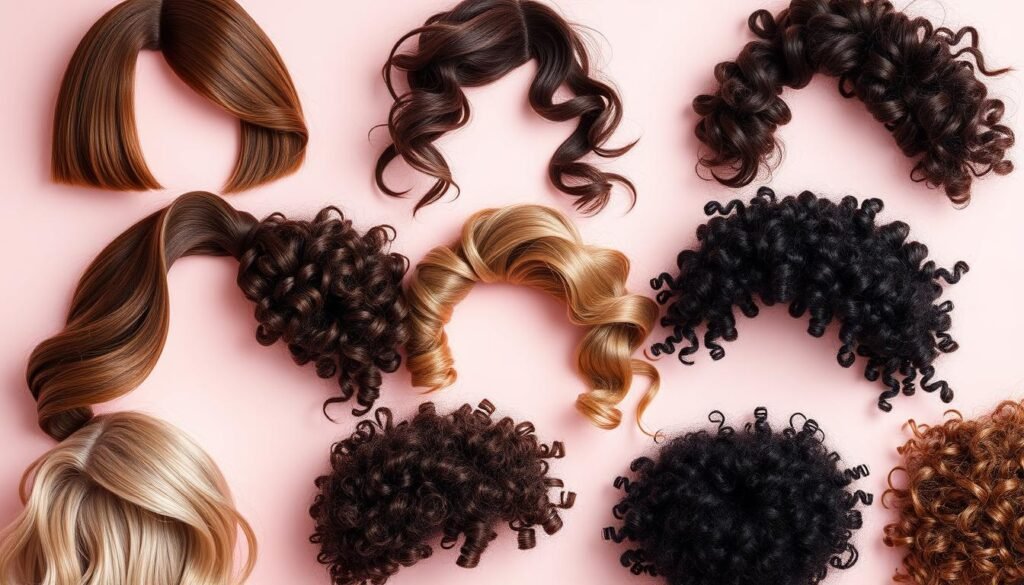
Effects of Over-Washing on Hair Health
While maintaining a clean scalp is essential for healthy hair, over-washing can actually do more harm than good. Excessive shampooing can strip your hair of its natural oils, leading to dryness, brittleness, and a dull appearance. This can also impact the overall health of your scalp, causing irritation, flakiness, and even dandruff.
Stripping Natural Oils
Your hair’s natural oils, known as sebum, play a crucial role in keeping your locks moisturized and protected. When you overwash your hair, you remove these beneficial oils, leaving your strands vulnerable to damage. This can result in split ends, frizzy hair, and a general lack of luster.
Impact on Scalp Health
Excessive washing can also disrupt the delicate balance of your scalp’s microbiome, leading to a range of issues. In an attempt to compensate for the loss of natural oils, your scalp may produce even more oil, leading to a greasy, oily appearance. This can also contribute to the development of dandruff and other scalp irritations.
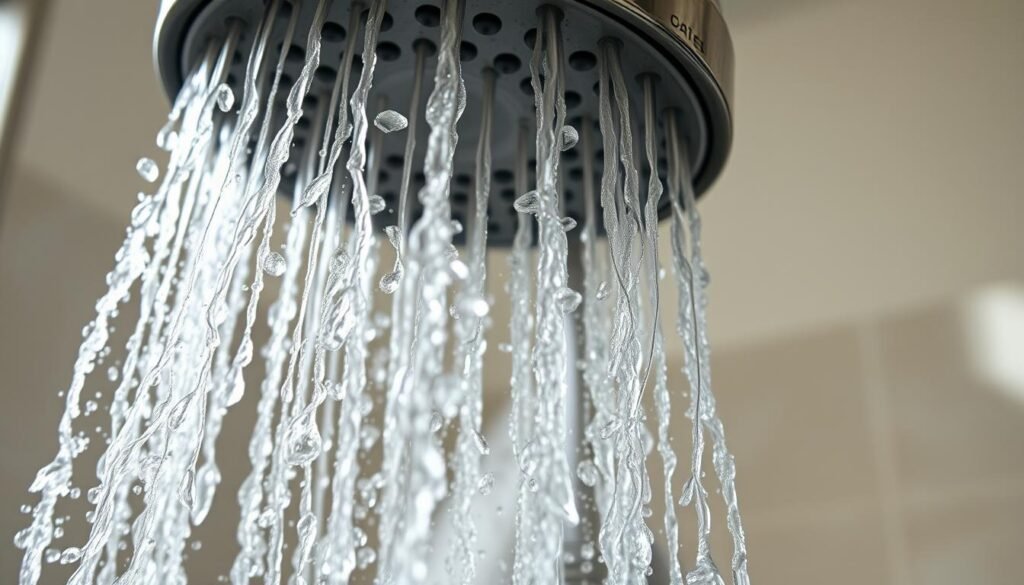
Finding the right balance between cleanliness and maintaining your hair’s natural oils is crucial for keeping your locks healthy and vibrant. Paying attention to the signs of over-washing, such as split ends, frizz, and an itchy scalp, can help you adjust your hair care routine and prevent long-term damage.
How to Choose the Right Shampoo for Your Hair Type
Selecting the appropriate shampoo is crucial for maintaining healthy, vibrant hair. To find the perfect fit, it’s essential to first identify your hair’s unique needs and characteristics. By understanding your hair type, you can make an informed decision and choose a shampoo that will cater to your specific requirements.
Identifying Your Hair Needs
Begin by assessing your hair type. Is it straight, wavy, curly, or coily? Consider the texture – is it fine, medium, or coarse? Also, take note of any special conditions, such as color-treated, dry, damaged, or oily hair. These factors will Guide you towards the right shampoo formulation.
Recommended Shampoo Types
- Straight Hair: Opt for a volumizing shampoo to add body and lift to fine, limp strands.
- Wavy Hair: Choose a moisturizing shampoo to tame frizz and enhance the natural wave pattern.
- Curly Hair: Seek out a sulfate-free, curl-enhancing shampoo to hydrate and define curls.
- Coily Hair: Look for a creamy, moisturizing shampoo that will nourish and strengthen coily, textured hair.
- Dry or Damaged Hair: Reach for a shampoo infused with nourishing oils, proteins, and vitamins to replenish and revive the hair.
- Oily Hair: Opt for a clarifying or volumizing shampoo to help regulate sebum production and refresh the scalp.
- Color-Treated Hair: Choose a sulfate-free, color-protecting shampoo to preserve your vibrant hue.
Remember, the best shampoo for your hair type may require some trial and error. Consulting with a hair care professional can also help you identify the perfect shampoo to achieve your desired hair goals.
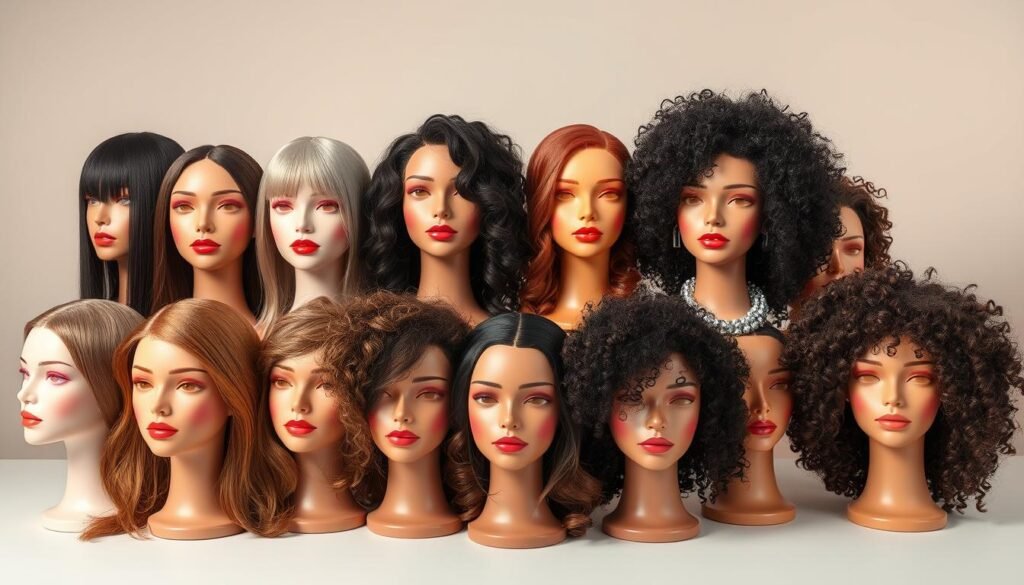
Alternative Hair Care Routines
In the pursuit of healthier, more vibrant hair, many individuals are exploring alternative hair care routines that go beyond the traditional shampoo and conditioner regimen. From the rise of the “no-poo” movement to the growing popularity of co-washing and dry shampoo, these innovative approaches offer a refreshing alternative to the conventional daily shampooing habits.
Co-Washing Explained
Co-washing, or conditioner-only washing, is a method that involves using a moisturizing conditioner instead of shampoo to cleanse the hair. This technique is particularly beneficial for individuals with curly, coily, or dry hair types, as it helps maintain the natural oils and hydration essential for healthy, manageable locks. By avoiding the harsh detergents found in many shampoos, co-washing can effectively cleanse the scalp while preventing the stripping of essential oils.
Dry Shampoo as an Option
For those seeking to extend the time between full shampoo sessions, dry shampoo has emerged as a convenient alternative. These powder-based products are designed to absorb excess oil and refresh the appearance of hair, effectively prolonging the time between washes. Dry shampoo can be a valuable tool for individuals with oily scalps or those who wish to maintain their style for longer periods without the need for frequent shampooing.
The “no-poo” movement, which advocates for reducing or eliminating the use of traditional shampoos, has gained significant traction in recent years. Proponents of this approach believe that shampoos, particularly those containing harsh sulfates, can strip the hair of its natural oils, leading to dryness, frizz, and damage. Instead, they turn to natural alternatives such as baking soda, apple cider vinegar, or gentle cleansers to maintain a healthy scalp and hair.
These alternative hair care routines offer a refreshing departure from the conventional shampoo-centric approach, empowering individuals to take a more mindful and personalized approach to their hair care regimen. By exploring co-washing, dry shampoo, and other no-poo methods, users can potentially reduce their reliance on harsh chemicals, preserve their natural oils, and achieve healthier, more vibrant-looking hair.

“The ‘no-poo’ movement has been a game-changer for many individuals seeking to reduce the impact of harsh chemicals on their hair and scalp.”
Expert Opinions on Daily Shampooing
When it comes to the frequency of shampooing, hair care experts offer valuable insights to help individuals find the right balance for their hair type and needs. Both dermatologists and hair stylists weigh in on the debate surrounding daily shampooing.
Dermatologist Insights
According to dermatologist Dr. Angela Lamb, daily shampooing is not necessary for most people. “I typically recommend that my patients don’t go longer than 14 days without washing their hair,” she advises. “But the ideal frequency really depends on the individual’s hair type and lifestyle.”
Hair Stylist Recommendations
Hair stylist Alli Webb echoes this sentiment, encouraging her clients to go as long as possible between washes. “The less you shampoo, the better,” she says. “Shampooing too often can strip the hair of its natural oils, leading to dryness and damage.”
Both experts agree that the optimal shampooing frequency is influenced by factors like hair type, scalp condition, and personal preference. They recommend adjusting routines based on hair and scalp health, using dry shampoo or styling techniques to extend the time between washes when possible.
| Hair Type | Recommended Shampooing Frequency |
|---|---|
| Straight Hair | Daily cleansing due to higher oil production |
| Wavy Hair | Daily or every second day cleansing |
| Curly Hair | Daily or every second day cleansing |
| Coily Hair | Every second or third day to once a week or every 10 days, depending on individual needs |
By heeding the advice of hair care experts, individuals can establish a shampooing routine that nourishes their hair and scalp, promoting overall hair health and vitality.

Signs Your Hair Needs a Break from Shampoo
While regular hair washing is essential for maintaining cleanliness and scalp health, over-washing can lead to a host of hair care woes. From dry, brittle strands to excessive greasiness, the signs of hair damage caused by an overly harsh routine are often easy to spot if you know what to look for.
Symptoms of Over-Washing
One of the primary indicators of over-washing is hair that feels dry, dull, and lacking in natural shine. Excessive shampooing can strip the hair of its essential oils, leaving it prone to breakage and split ends. You may also notice increased frizz and difficulty styling your hair as it becomes more unruly.
Another common sign of over-washing is a flaky, irritated scalp. The skin on your head can become dehydrated and produce more oil in an attempt to compensate, leading to a greasy, dirty appearance despite frequent washing. This imbalance can also contribute to itchiness and dandruff.
How to Tell if Your Routine is Too Harsh
- Your hair feels squeaky clean after washing, indicating it’s been stripped of natural oils.
- You notice increased hair loss or breakage, especially at the ends.
- Your hair becomes excessively oily within a short time after washing.
- Styling your hair is a constant battle due to frizz and lack of manageability.
If you’re experiencing any of these hair damage signs or overwashing symptoms, it may be time to reevaluate your harsh hair care routine and give your strands a much-needed break from shampoo.
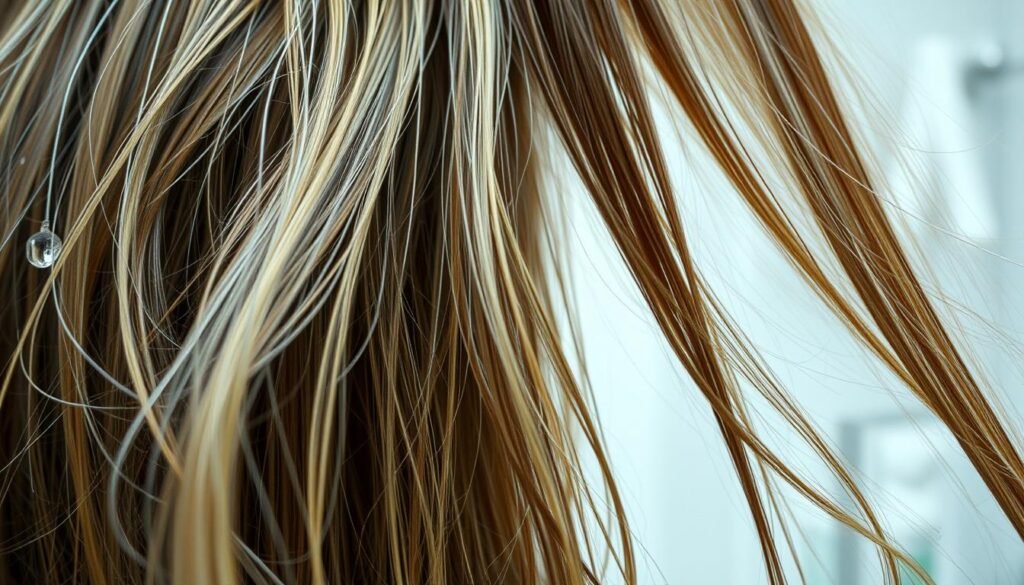
Myths About Daily Shampooing
When it comes to hair care, there are numerous misconceptions surrounding the practice of daily shampooing. Many believe that hair can self-clean if left unwashed for long enough, or that daily washing is always necessary for cleanliness. However, these are just a few of the common hair care myths that need to be debunked.
Debunking Common Misconceptions
One prevalent shampoo misconception is that oily hair needs more frequent washing, which can actually stimulate more oil production. Additionally, the idea that natural oils can reach the ends of long hair is often a myth for many hair types. Understanding these misconceptions is crucial in developing an effective hair care routine tailored to individual needs, rather than relying on general assumptions.
Understanding Hair Care Myths
Contrary to popular belief, daily shampooing does not necessarily damage hair. In fact, a study published in the Journal of the American Academy of Dermatology in 2007 found no significant difference in hair loss between participants who shampooed daily and those who shampooed less frequently.
Additionally, a 2015 study in the Journal of the Society of Cosmetic Scientists revealed that there was no connection between the frequency of shampooing and hair loss, emphasizing that genetics, hormonal imbalances, nutritional deficiencies, and medical conditions play a more significant role in hair loss than shampooing habits.
Consulting experts, such as trichologist Anabel Kingsley, who recommends washing the scalp daily, and trichologist Shab Reslan, who suggests washing hair every other day, can provide valuable insights into hair washing Facts and debunk common myths.
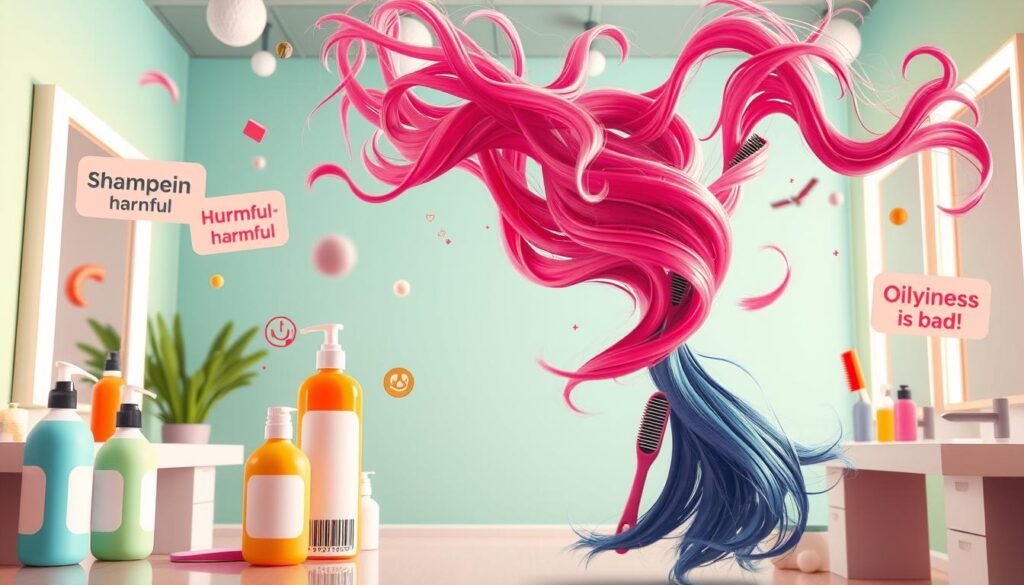
“Washing hair every other day to prevent build-up that could affect hair quality, and using a supplemental shampoo if going longer between washes.”
– Trichologist Shab Reslan
By understanding the Facts and dispelling the myths surrounding daily shampooing, individuals can make informed decisions about their hair care routines, leading to healthier, more vibrant hair.
Conclusion: Finding the Right Balance for Your Hair
Achieving the perfect hair care routine is a delicate balance that requires some experimentation. By understanding your unique hair type, lifestyle, and needs, you can tailor your shampooing frequency and product selection to maintain healthy, vibrant locks. It’s crucial to pay attention to how your hair responds to various care methods and make adjustments accordingly.
Tailoring Your Routine to Your Needs
Consider factors like climate, exercise habits, and styling preferences when determining your optimal shampooing schedule. For instance, those with naturally oily hair may benefit from washing daily or every other day, while individuals with dry or coarse hair may find less frequent washing (every 3-7 days) more suitable. Similarly, those living in humid or polluted environments may need to shampoo more often to remove buildup and maintain a clean, fresh scalp.
When to Consult a Professional
If you’re experiencing persistent hair or scalp issues, such as excessive dryness, dandruff, or excessive shedding, it’s advisable to consult a dermatologist or trichologist. These hair care experts can provide personalized recommendations and address any underlying concerns affecting your hair health. They may also suggest professional treatments, such as keratin treatments or protein-rich masks, to help repair and strengthen damaged hair.
FAQ
Does shampooing daily damage hair?
Experts suggest there’s no single answer to how often people should shampoo, as it depends on personal preference and hair texture. Shampooing too frequently may lead to dry, breakable hair, as shampoo traps excess oil, dirt, and product residue, while some natural dirt and oil are beneficial for Hair protection and moisturizing.
What is the structure and growth cycle of hair?
Hair structure consists of the shaft, root, and follicle. Hair growth occurs in cycles: anagen (growth), catagen (transition), and telogen (resting). Factors influencing hair health include genetics, age, hormones, nutrition, and environmental factors.
What are the key ingredients to look for in shampoo?
Key ingredients to look for in shampoo include cleansing agents (sulfates or sulfate-free alternatives), conditioning agents, and preservatives. Common additives include fragrances, colors, and specialized ingredients for specific hair types.
What are the benefits and drawbacks of daily shampooing?
Benefits of daily shampooing include removing excess oil and dirt, promoting scalp health, and maintaining a clean appearance. Potential drawbacks include stripping natural oils, causing scalp dryness and irritation, and potentially leading to dandruff. Overwashing can damage hair health, causing dull coloring and thinning.
How often should different hair types be shampooed?
Oily hair may need more frequent washing, while dry hair can go longer between washes. Curly and coarse hair tends to be drier and may only need washing once a week or every other week. Straight, thin hair may require more frequent washing as oil is more noticeable.
What are the effects of over-washing on hair health?
Over-washing can strip hair of natural oils, leading to dryness, breakage, and a dull appearance. It can also impact scalp health, causing irritation, dryness, and dandruff. Excessive washing may lead to increased oil production as the scalp tries to compensate for the loss of natural oils.
How do I choose the right shampoo for my hair type?
Choosing the right shampoo involves identifying your hair type and specific needs. For oily hair, look for clarifying shampoos. Dry or damaged hair benefits from moisturizing or protein-rich formulas. Color-treated hair requires sulfate-free options. Consider factors like scalp condition, hair texture, and any treatments you’ve had.
What are some alternative hair care routines?
Co-washing involves using conditioner instead of shampoo to clean hair, beneficial for curly or dry hair types. Dry shampoo can absorb excess oil and freshen hair between washes, extending the time between shampoos. The “no-poo” movement advocates for reducing or eliminating shampoo use, using natural ingredients like baking soda or apple cider vinegar.
What do experts recommend regarding daily shampooing?
Dermatologists suggest that daily shampooing isn’t necessary for most people, and they recommend adjusting routines based on hair and scalp condition, using dry shampoo or styling techniques to extend time between washes. Hair stylists also advise clients to go as long as possible between washes.
What are the signs of over-washing hair?
Signs of over-washing include dry, brittle hair, increased frizz, scalp irritation, and excessive oil production. If your hair feels squeaky clean after washing, it may indicate over-stripping of natural oils. Increased breakage, split ends, and difficulty styling can also suggest a too-harsh routine.
What are some common myths about daily shampooing?
Common myths include the belief that hair can self-clean if left unwashed long enough, or that daily washing is always necessary for cleanliness. Another misconception is that oily hair needs more frequent washing, which can actually stimulate more oil production. The idea that natural oils can reach the ends of long hair is also a myth for many hair types.






